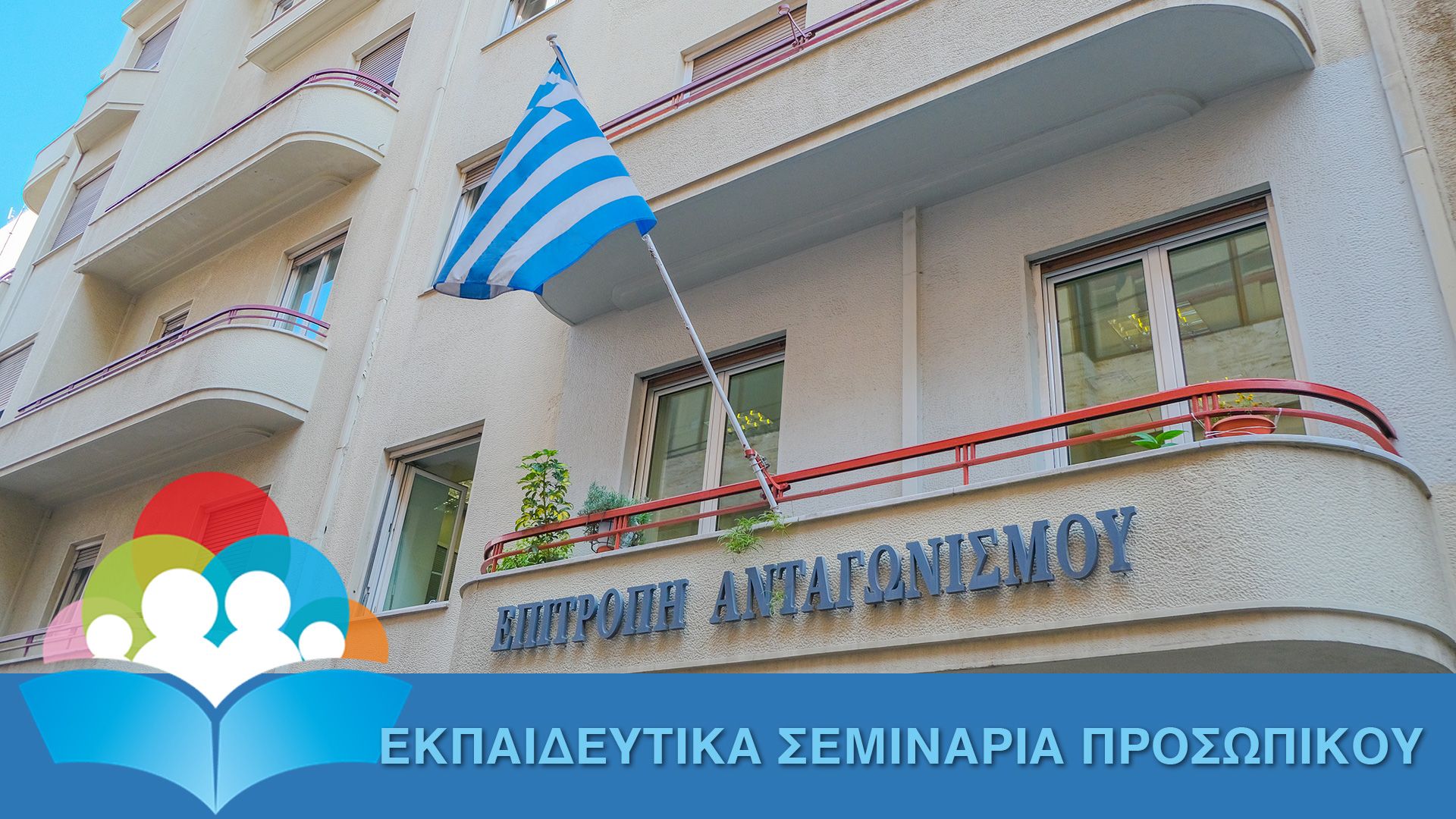The seminar focused on the extent of an economic shock pass-through to final prices and on how this extent depends on the level of market competition, as the way cost changes (taxes, exchange rates, prices) are passed-through by the undertakings to prices is a fundamental issue in economics.
The speaker first presented the theoretical framework by developing some basic concepts (such as the “absolute pass-through”). Subsequently, he examined tax incidence by analyzing how a tax burden is shared between buyers and sellers on the basis of supply-and-demand elasticity and explained how the extent of pass-through depends on the relative size of the slopes of the supply and demand curves. He also presented pass-through rates in monopoly, oligopoly and perfect competition market conditions, as well as in the case of vertical supply relationships, where the total pass-through rate should be calculated.
Next, empirical research data on the pass-through rate were presented, showing differences at both sector and business levels and also at a market power level where outcomes are mixed.
The last part of the seminar included a presentation of new empirical data on how the pass-through rate varies depending on the level of competition in small isolated oligopolistic markets of different sizes. Using daily price data from gas stations in Greece, the speaker demonstrated how some unforeseen and exogenous changes in excise duties (which vary between different petroleum products) are passed on consumers in markets with different numbers of retailers. In particular, he has shown that pass-through increases as competition increases (from 44% in monopolistic markets to 100% in markets with four or more competitors) and that price adjustment pace is about 60% higher in more competitive markets. Finally, he has shown that geographic market definition by using arbitrary measurements based on the distance between sellers leads to overestimation of pass-through when the number of competitors is limited.
The presentation ended with a fruitful dialogue with the staff.

